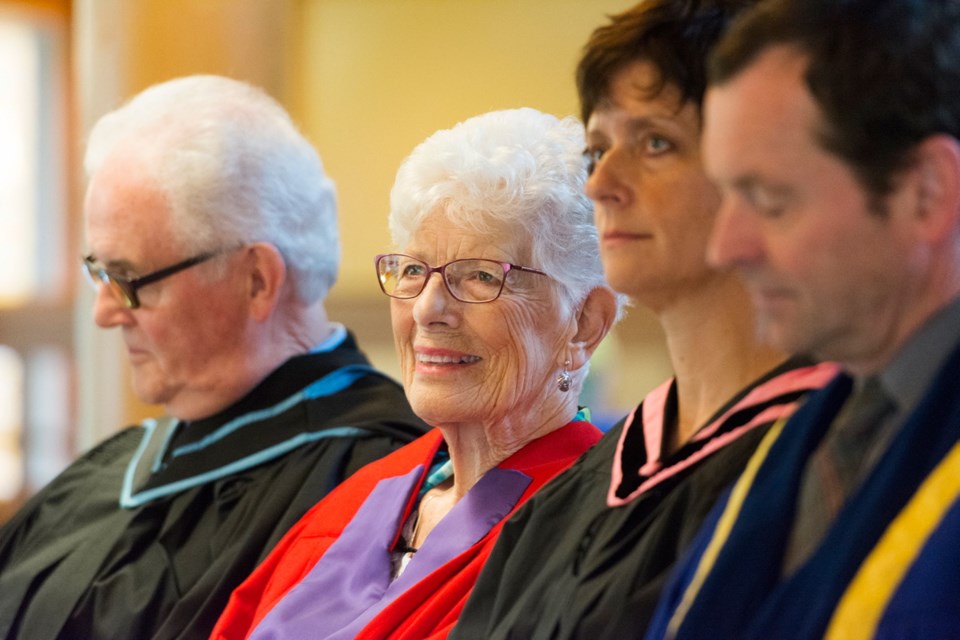After what seemed endless rebuffs — but still desperate to lobby the B.C. premier about aboriginal grievances — Mavis Gillie finally resorted to daffodils.
It was the late 1980s and springtime and Gillie figured no staff member would question a basket of daffodils for then-premier Bill Vander Zalm, a longtime grower of greenhouse flowers and owner of a floral theme park.
“They just ushered her right into the premier’s office and she said: ‘Premier, I’m Mavis Gillie. I wanted to bring you some flowers and by the way we need to talk,’ ” remembers Jane Brett, Gillie’s longtime friend.
Gillie, 88, was made an honorary doctor of law on Wednesday in a special convocation ceremony at the University of Victoria in recognition of her lifelong advocacy for aboriginal rights and reconciliation.
According to speakers and UVic supporters at the convocation, Gillie had an avocation, well illustrated by the daffodils, that meant she would knock on any door or push any button for a chance to make her case.
“Mavis has never been shy,” said UVic law professor John McLaren in an address honouring Gillie.
“She has never shrunk from addressing and challenging those who would rather not listen, whether by peaceful protest or seeking to hold ministers of the Crown, legislators and public servants to account.”
Gillie was born in St. Albert, Sask., and grew up as an active, youthful participant in the Anglican Church. Throughout her life, she remained committed to the Anglican spiritual tradition and much of her advocacy on behalf of native people was undertaken within the church.
In the late 1960s, she and her late husband, Bernard, moved to Fort Smith, N.W.T., where he became superintendent of schools. The couple would remain there for 10 years. It was a formative experience in which Gillie became convinced of the need for reconciliation and healing between aboriginals and non-aboriginals in Canada, based on moral and spiritual principles.
She was a founding member of Project North and Aboriginal Neighbours and worked with the Dene and Inuit peoples in their struggles against the Mackenzie Valley Pipeline in the 1970s.
After moving south to B.C., Gillie worked with First Nations peoples in opposing logging in Haida Gwaii and the Stein Valley and helped organize support for the Nisga’a Treaty.
In a short interview Wednesday, Gillie said she always appreciated the honour, honesty and humour with which native people treated her. Furthermore, she was always a little awed by the depth of their historical knowledge.
“They often had a sense of history that I didn’t always have, so I had to make sure I looked stuff up to make sure I was somewhere near the same level,” she said. “But, really, I wouldn’t have missed my small role with native peoples for anything.”



